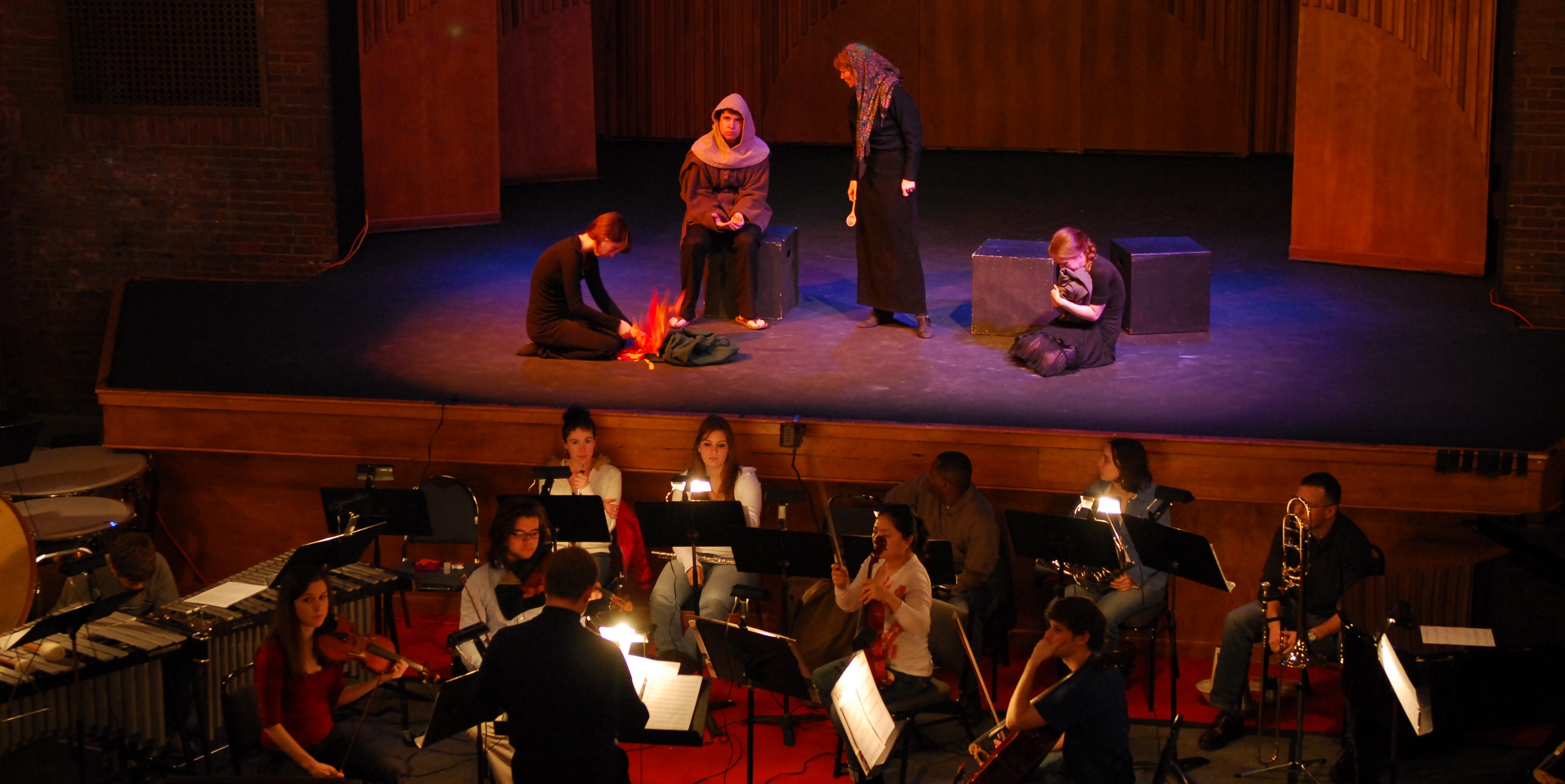
Our B.A. program for composers features courses in electronic music, orchestration, form and analysis, and (by choice) conducting, as well as private composition lessons and participation in ensembles, preparing composers for a diverse career in the wider musical world.
-
Typical Plan of Study
Learn More
